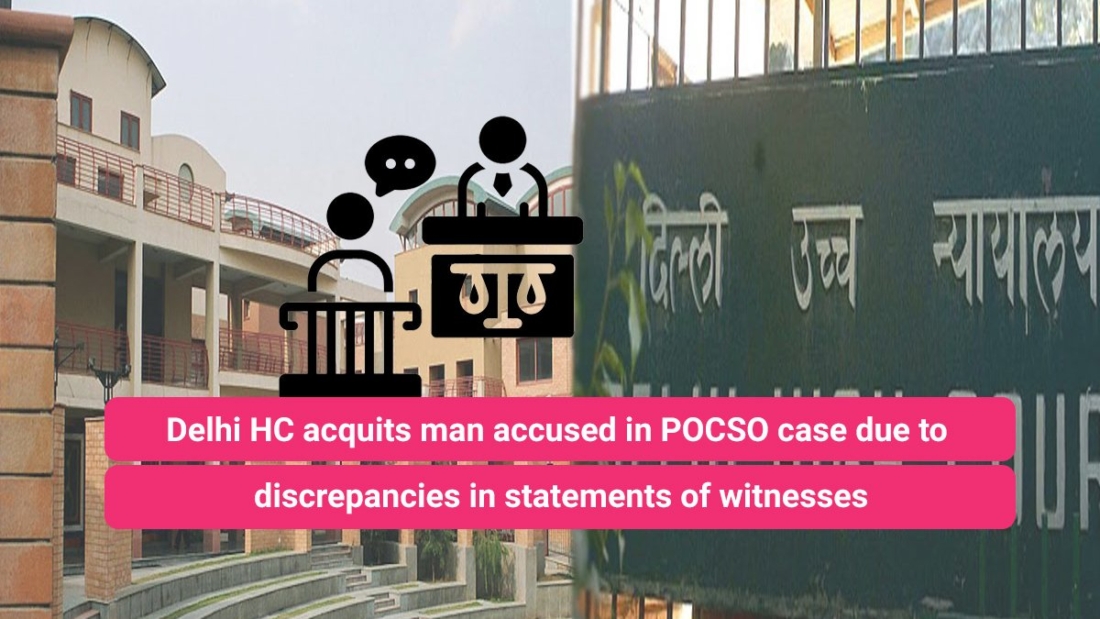In the case of R v. State, the Delhi High Court on 05.01.2022 noted the inconsistencies in the statements of the victim and the witnesses and acquitted the accused.
Facts– The Victim was living with her family in a rented accommodation and once her parents would leave for work in the morning, she would be alone with her siblings. A man (“Accused”) would come outside the house, unzip his pants and show his private part to the victim. He would even show her currency notes and ask her to sit on his bicycle, after which she would close the door. One day when the victim saw the accused at an event which was being conducted on the street outside her house, she went and told her mother about his previous activities after which, the mother caught him by the collar and a complaint was filed once the father also reached the spot. The FIR was filed under Section 354 (Assault or criminal force to outrage modesty of a woman) and Section 509 (Outraging the Modesty of Woman) of the IPC. The Victim’s statement was also recorded in which she mentioned that even her friend had been harassed by the accused and she even stated that the accused had tried to enter her house by scaling the wall. She said that on the day of the complaint also, he was doing the wrongful act but was caught by her mother and relatives. After the investigation was completed, a charge was framed under Section 12 of the Protection of Children from Sexual Offences Act, 2012 (“POCSO Act”) (Punishment for Sexual Harassment of Child).
Submissions– The Counsel for the accused pointed out that the victim had not mentioned in the complaint that her friend had also been harassed and there were a lot discrepancies in the statements of the victim and the witnesses. The accused claimed that he had never misbehaved with the victim and was just a laborer who was being implicated as a result of being wrongfully identified by the victim and her mother.
The prosecution on the other hand argued that the victim had correctly identified the accused as the one who had committed the offence and the inconsistencies were not affecting the investigation in any way.
Observations by the Court– The Court first started discussing the age of the victim which was established to be 10-12 years old at the time of the incident and then remarked on the credibility of child witnesses. It has been held in Ranjeet Kumar Ram v. State of Bihar (2015) that the credibility of a child witness would depend on the circumstances and the reliability of the child witness while it was held in Dattu Ramrao Sakhare v. State of Maharashtra (1997) that conviction on the sole basis of the child witness is permissible if the witness is found to be competent and the testimony is trustworthy.
The Court also analyzed the witnesses who were examined and the statements made by them. It was found that all the witnesses had narrated their own version of events as to how the victim informed her mother and how the accused was apprehended. Keeping all this in mind, the Court observed that there were too many contradictions in the statements and cast doubt over the credibility of the prosecution case.
Judge Manoj Kumar Ohri finally stated that due to the many contradictions, the involvement of the accused was not established beyond reasonable doubt and acquitted him of the charges.
– Vaishali Jain, Advocate & Associate – Child Safety at Work & Rhea Bazaz, Final Year Student, Symbiosis Law School, Pune
 Cart is empty
Cart is empty 

